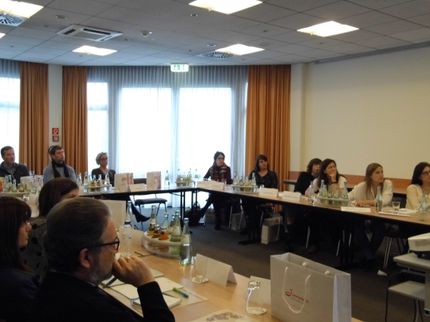Formula milk trials are not reliable, warn experts
Recent trials lack scientific rigour; substantial change needed to protect participants from harm and protect consumers from misleading information
Formula milk trials have a high risk of bias, authors almost always report favourable conclusions, transparency is lacking, and findings are selectively reported, finds a review of evidence from recently published trials in The BMJ today.

Photo by Helena Lopes on Unsplash
The researchers say their findings “support the need for a substantial change in the conduct and reporting of formula trials to adequately protect participants from harm and protect consumers from misleading information.”
Formula milk is consumed by most European and North American infants, and new formula products need to be tested in clinical trials. But concerns have been raised that formula trials are biased and could undermine breastfeeding.
To explore this further, an international team of researchers set out to evaluate the conduct and reporting of formula milk trials. They were specifically interested in understanding the risk of bias in published formula trials and if trial procedures could cause harm by undermining breastfeeding of participants.
They carried out a detailed analysis of 125 trials published since 2015 that compared at least two formula milk products in a total of 23,757 children less than three years of age.
The trials were mainly carried out in Europe (42%), Asia (28%), or North America (18%) and the most common measures were weight gain (36%), intestinal health (26%), nutrient absorption (10%), behaviour (6%), and allergy (6%).
The researchers found that only 17 (14%) of these trials were conducted independently of formula companies, 26 (21%) were prospectively registered with a clear aim and main (primary) outcome, and 11 (9%) had a publicly available protocol.
Most (80%) of trials had a high risk of bias for their primary outcome, usually because of inappropriate exclusions of participants from the analysis, and selective reporting (when results are not fully or accurately reported, to suppress negative or undesirable findings).
Favourable conclusions were reported for more than 90% of trials.
This is a comprehensive evaluation of the conduct and reporting of formula trials, but the researchers acknowledge that because the results of many formula trials are not in the public domain, their findings cannot fully represent all trials conducted.
Nevertheless, they say their study suggests that formula trials are not reliable and might not adequately protect participants in the trials.
“The formula industry is closely involved in formula trials, findings are almost always reported as favourable, and little transparency exists about the aims of the trial or reporting of results,” they write. “Our findings support the need for a substantial change in the conduct and reporting of formula trials to adequately protect participants from harm and protect consumers from misleading information.”
Most read news
Original publication
Organizations
Other news from the department science

Get the food & beverage industry in your inbox
By submitting this form you agree that LUMITOS AG will send you the newsletter(s) selected above by email. Your data will not be passed on to third parties. Your data will be stored and processed in accordance with our data protection regulations. LUMITOS may contact you by email for the purpose of advertising or market and opinion surveys. You can revoke your consent at any time without giving reasons to LUMITOS AG, Ernst-Augustin-Str. 2, 12489 Berlin, Germany or by e-mail at revoke@lumitos.com with effect for the future. In addition, each email contains a link to unsubscribe from the corresponding newsletter.





























































